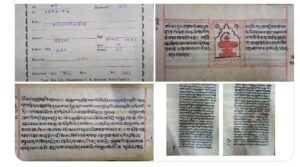New Delhi, May 16: Arhar (tur) pulses are once again showing a rising trend in the Indian market. In view of the rapid rise in the price of pulses, the central government has started preparations for its import from Myanmar, so that domestic consumers can get relief. It is believed that the Central Government may import about 1.05 lakh tonnes of Arhar Dal for the current season.
It is worth mentioning that due to the decrease in the production of pulses in the last season, once again the price of Arhar Dal has started increasing in the Indian market. There was a shortfall of about 21 per cent in the production of Arhar during the last season.
Experts say that due to the shortfall in production, some traders have hoarded pigeon pea on a large scale, due to which a situation like shortage of pigeon pea has been created in the retail market and its price has started rising.
In the month of April, arhar dal was being sold in the wholesale market at a price ranging from Rs 8,100 to Rs 8,310 per quintal. But in May, the price of tur dal has jumped from Rs 9,000 to Rs 9,145 per quintal. Arhar price in Maharashtra’s Akola mandi is ruling at Rs 9,080 per quintal.
It is believed that if the availability of tur dal is not increased immediately in the market, then by the end of this month, its price in the wholesale market may cross the level of Rs 10,000 per quintal.
Because of this boom in the market, the central government has started preparing for the import of Arhar and Urad Dal from Myanmar. Myanmar is a major producer of both these types of pulses.
The Center expects to import arhar dal from Myanmar at the rate of around Rs 6,800 to Rs 7,200 per quintal. Transportation cost is also included in this price. The intention of the government is to make such a huge stock of Arhar dal, so that till the beginning of the next season, sufficient stock of pulses remains in the country.
In this regard, the Department of Consumer Affairs has already written to the Ministry of External Affairs, urging it to make arrangements to start the procurement process for importing Arhar and Urad Dal from Myanmar. After receiving the letter from the Consumer Affairs Department, Indian Embassy officials in Myanmar have also started talks with local businessmen.
It is expected that the consignment of imported pulses will start reaching India by the end of this month. After this happens, due to adequate availability of pulses in the market, its prices will not only fall, but domestic businessmen engaged in hoarding will also open their stocks to avoid losses. Due to which the consumers will get double relief.





